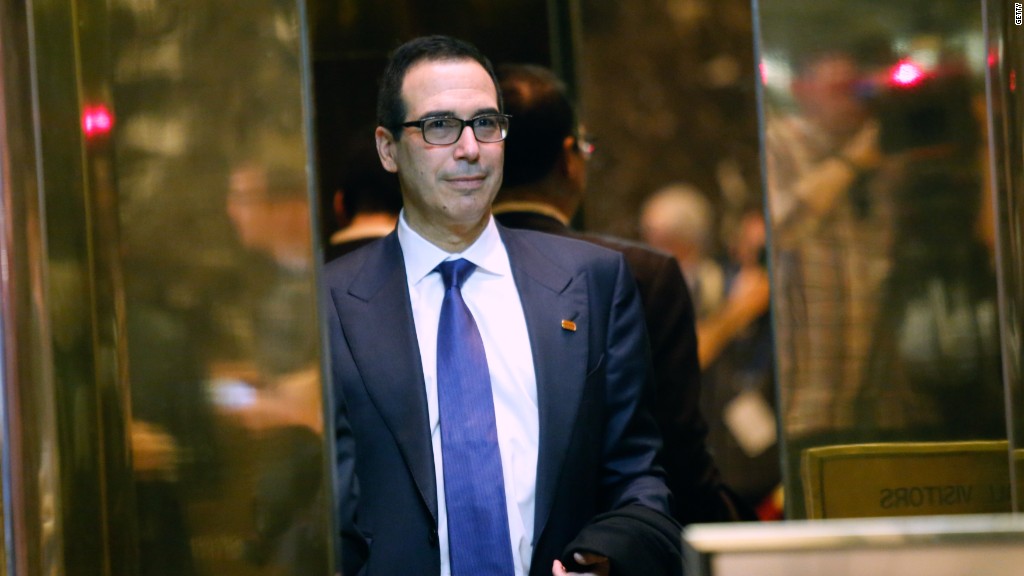
Mortgage giants Fannie Mae and Freddie Mac were placed under federal government control in September 2008, during the global financial crisis. But Donald Trump's Treasury secretary pick, Steven Mnuchin, wants them set free.
He told Fox Business News on Wednesday that "we've got to get them out of government control" and added that the incoming Trump administration should be able to restructure Fannie and Freddie "reasonably fast."
Fannie and Freddie buy mortgage loans from lenders. They were created by the government to make it easier for borrowers to get mortgages. They hold some of the loans that they buy in their own portfolios and package others into pools that are sold to investors.
Both ran into trouble after the housing bubble burst as more and more borrowers defaulted on their mortgages. The government wound up investing $187 billion to bail the two of them out.
But they are still both publicly traded companies that are backed by some prominent investors, many of whom have been clamoring for the government to finally let them go.
To that end, shares of Fannie (FNMA) and Freddie (FMCC) -- whose official names are the Federal National Mortgage Association and Federal Home Loan Mortgage Corporation -- each soared more than 30% on Wednesday following Mnuchin's comments.
The hope is that Fannie and Freddie will become truly independent companies that no longer have ties to the government.
Related: The national debt is the Republicans' problem now
Washington's relationship with Fannie and Freddie is a bit complicated, though. The government actually doesn't own any of the common shares that trade on Wall Street.
The Treasury Department has warrants that give it the right to a 79.9% ownership stake. But the government has not exercised those warrants.
So who owns the shares that trade on Wall Street?
Mutual fund giant Fidelity has big stakes in the stocks of both companies. Bill Ackman's Pershing Square is the largest investor in Fannie and also has a stake in Freddie. Fairholme Funds, run by value guru Bruce Berkowitz, owns preferred stakes in both.
And many of these investors have been feuding with the feds over their role in the takeover of Fannie and Freddie.
Fairholme sued the government over its takeover of Fannie and Freddie, alleging that Washington improperly seized the two companies' profits. A federal judge ruled last month that the government withheld some of the documents about its takeover.
Ackman had also filed a lawsuit over the terms of the bailout.
But Mnuchin's comments about privatization could be the biggest victory yet for Fannie and Freddie shareholders.
Related: Donald Trump's curious Goldman Sachs connections
What remains to be seen is whether Mnuchin's plan will get past Republican congressional leaders.
Texas GOP Representative Jeb Hensarling, the chair of the House Financial Services Committee, has said on numerous occasions that he wants Fannie and Freddie to eventually be unwound completely.
Tennessee Republican Senator Bob Corker also backs the elimination of Fannie and Freddie.
Unshackling Fannie and Freddie from the government could also put an end to a steady stream of cash that the two have paid the Treasury Department in dividends over the past few years.
Both have payments due in December. Including those dividends, Fannie and Freddie will have paid $255.8 billion to Treasury since the government took them over. So Fannie and Freddie have actually wound up being a profitable investment for taxpayers.
Now Wall Street wants more of the action -- and Mnuchin and Trump may give it to them.


